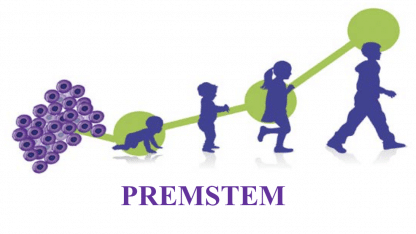Iconeus has become a member of PREMSTEM – a project funded by the EU’s Horizon 2020 programme that aims to develop a new regenerative stem cell therapy to repair the brain damage sometimes caused by premature birth.
The PREMSTEM project officially began in January 2020, and currently has fifteen partners from eight countries, including world-leading clinicians, researchers and healthcare organizations specializing in neonatology. The project has received €9M in funding from the EU’s Horizon 2020 Research and Innovation programme.
The project aims to develop a new therapy, using stem cells to regenerate the brain damage caused by premature birth, known as ‘encephalopathy of prematurity’ (EOP). Project members will use Iconeus’ fUS imaging technology to develop and validate the therapy in animal models of EOP. This is important, because current neuroimaging technologies are cumbersome, and have limited sensitivity and spatio-temporal resolution.
Ultimately, the aim is to be able to ‘rebuild’ damaged areas of the brain by using human mesenchymal stem cells (HMSCs, taken from umbilical cord tissue). Professor Pierre Gressens, PREMSTEM Project Coordinator, said the five-year project will see a therapy ready for clinical trials to see if it will treat brain injury in premature born infants: “We’ll be examining the best regimen, timing, dose and administration route for HMSCs as therapy for this specific type of brain injury”, Gressens said.
Once the research is complete, Gressens said the therapy will have an even broader application: “We anticipate that we’ll be able to extend to other types of perinatal brain injury and disorders such as paediatric multiple sclerosis,” he said.
More than 15 million babies are born preterm every year – before 37 weeks of a typical 40 week pregnancy – and are at risk of long-term disability due to brain damage. The last weeks of pregnancy are a time of astounding growth and change for an unborn baby’s brain – often referred to as the ‘big bang’ during neonatal development. However, disturbances in the brain’s growth, such as through premature birth, can result in cerebral palsy, severely impaired cognitive functions and disorders such as attention deficit hyperactivity disorder (ADHD) and autism spectrum disorder (ASD).
About Premstem
The academic and industry partners of PREMSTEM are the Institut National De La Santé et de La Recherche Médicale (Inserm) (France), Inserm Transfert (France), Royal Melbourne Institute of Technology (RMIT) University (Australia), RMIT Europe (Spain), Universitair Medisch Centrum Utrecht (Netherlands), Universiteit Maastricht (Netherlands), Stichting Katholieke Universiteit (Netherlands), Universitaetsklinikum Essen (Germany), Goteborg Universitet (Sweden), Consiglio Nazionale Delle Ricerche (Italy), Universite De Geneve (Switzerland), Iconeus (France) and CHIESI Farmaceutici SPA (Italy).
Two major advocacy groups supporting premature born infants and their families are also central to the project – The European Foundation for the Care of Newborn Infants (EFCNI) in Germany, as well as the Cerebral Palsy Alliance, in Australia.
For more about PREMSTEM, visit their website, or contact Stéphanie Le Naour.
